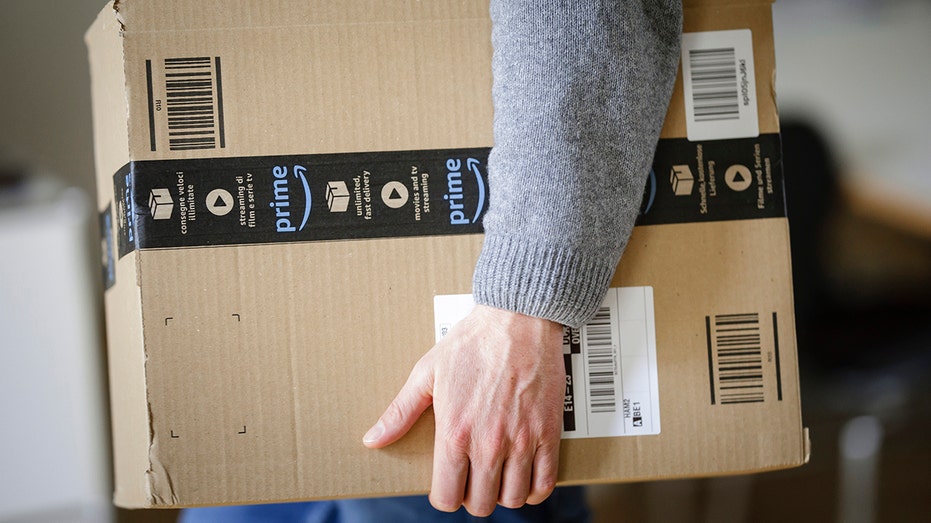Amazon to surpass Walmart as largest US retailer
Amazon's share of US e-commerce increased to 39% in 2020
Walmart is on the brink of losing its title as the nation's largest retailer. E-commerce giant Amazon – which prevailed over the competition in 2020 – is on its heels.
Based off current estimates, Amazon – whose share of U.S. e-commerce increased to 39% in 2020 – "should surpass" Walmart as the largest U.S retailer as soon as next year, JP Morgan analysts projected in a research note.
CLICK HERE TO READ MORE ON FOX BUSINESS
| Ticker | Security | Last | Change | Change % |
|---|---|---|---|---|
| AMZN | AMAZON.COM INC. | 210.32 | -12.37 | -5.55% |
| WMT | WALMART INC. | 131.18 | +4.24 | +3.34% |
Overall, pandemic, which accelerated the rise of online shopping, "pulled forward 3 years of e-commerce growth," according to analysts.
"The dramatic growth of e-commerce over the past 18 months has accelerated Amazon’s rise to dominance, and even the largest traditional retailer may soon fall behind," the major bank told FX Empire in a statement.
In fact, Amazon is one of the few retailers that has benefited during the pandemic. As physical stores temporarily closed, people stuck at home turned to Amazon to buy groceries, cleaning supplies and more. That doesn’t seem to be dying down.
AMAZON SALES TOP $108B AS BEZOS TOUTS PRIME AND CLOUD GROWTH

(Photo by Thomas Trutschel/Photothek via Getty Images)
Throughout 2020, the company gained a profit of $21.3 billion, compared to $11.6 billion in 2019.
In April, the company said its first-quarter profit more than tripled from a year ago, fueled by the growth of online shopping. It also posted revenue of more than $100 billion, the second quarter in a row that the company has passed that milestone.
GET FOX BUSINESS ON THE GO BY CLICKING HERE
In the first three months of this year, the company reported profit of $8.1 billion, compared to $2.5 billion the year before. Earnings per share came to $15.79, about $6 more per share than what Wall Street analysts expected, according to FactSet.
"While e-commerce gains during the pandemic were initially driven by the closure of B&M [brick and mortar] stores or consumers hesitant to shop in-person, e-comm has remained strong into re-opening," analysts said in the research note.
The Associated Press contributed to this report.





















